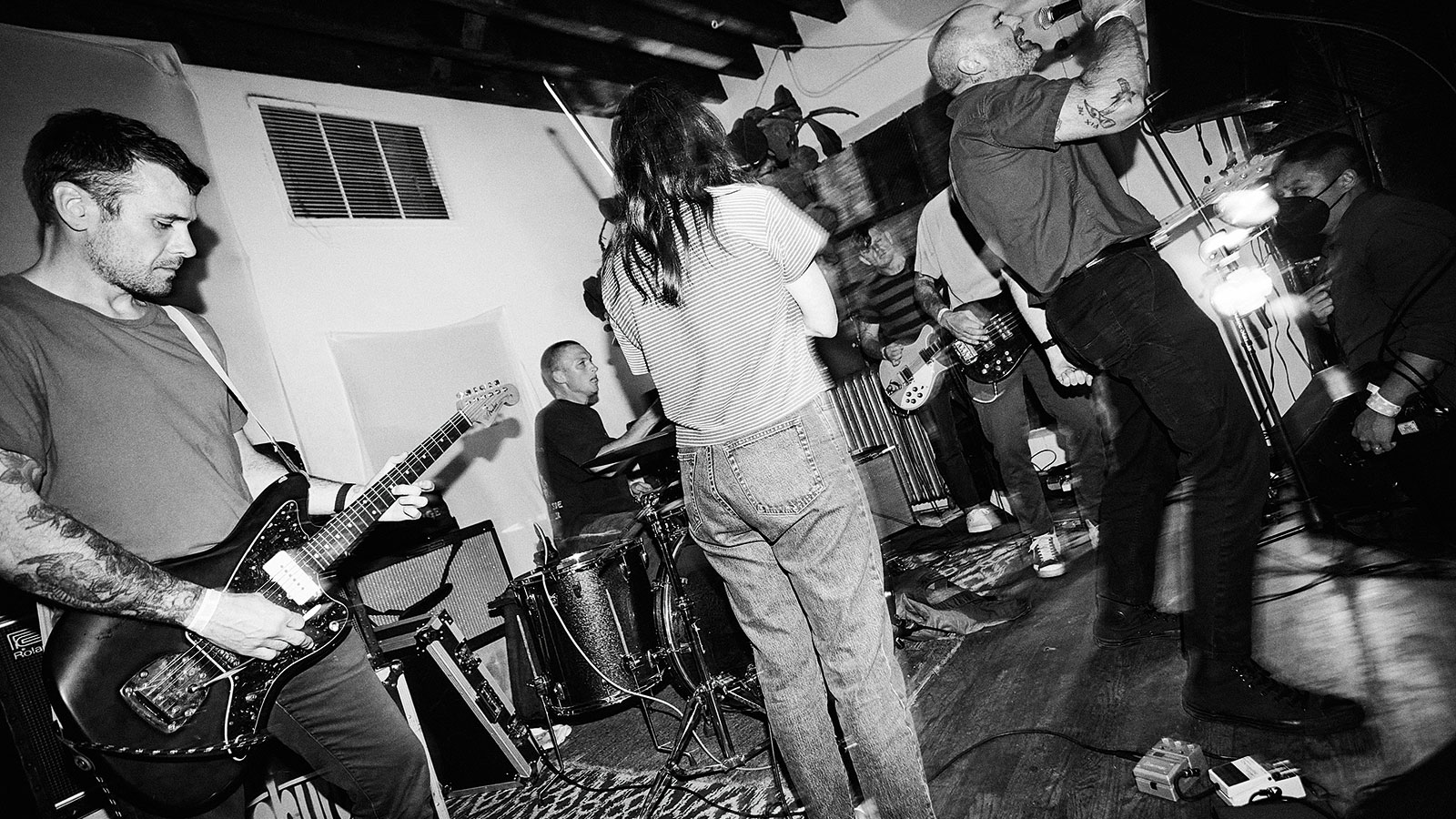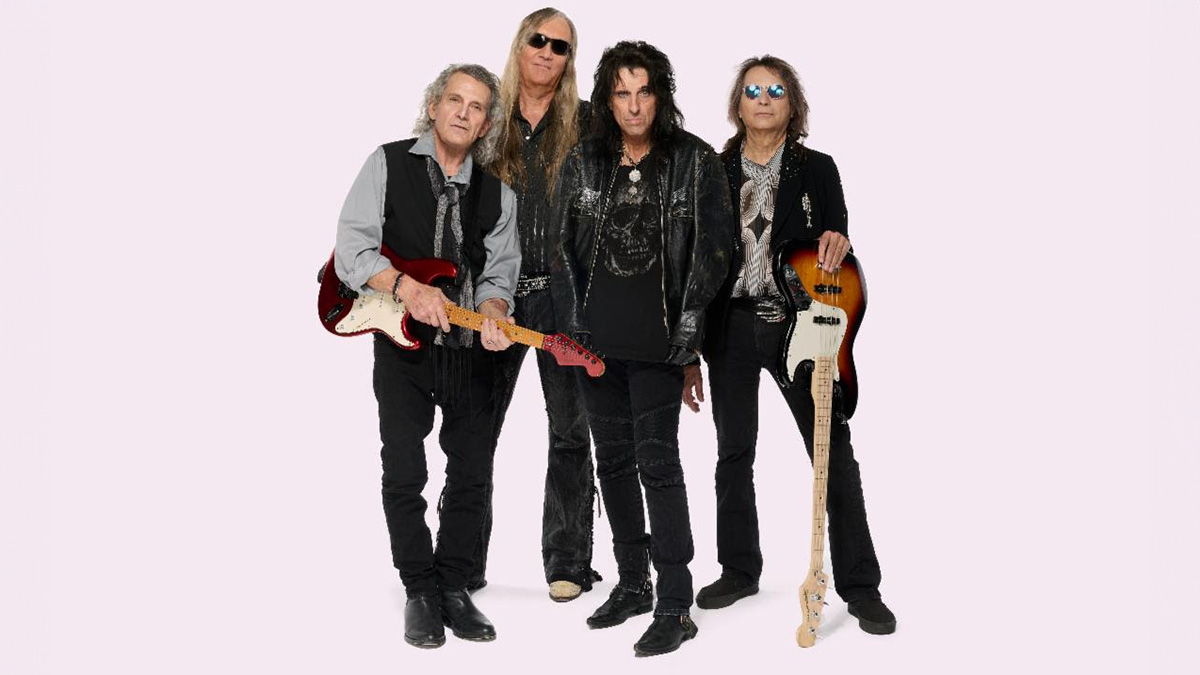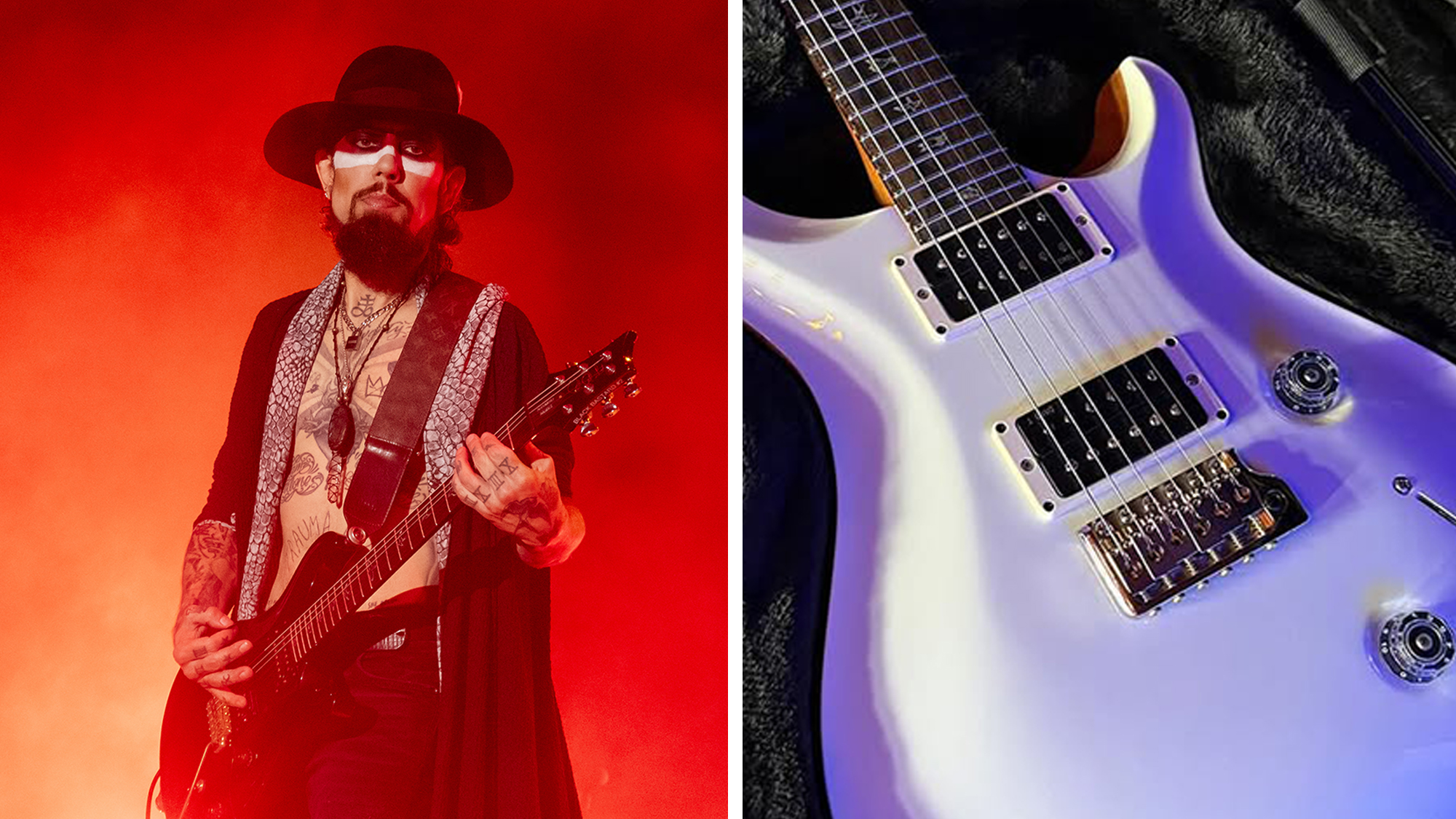Spice’s Ian Simpson on how he built a rock-grunge sound around a “tonally juicy” modded Jazzmaster, a well-stocked ‘board and a pop sensibility
Carrying the torch for San Francisco’s East Bay DIY rock lineage, Spice augment that urgent tradition with textured guitar tones inspired by post-rock’s “big noise experience”

Hailing from San Francisco’s East Bay, Spice are a rock ’n’ roll unit cut from the DIY tradition.
Their second full-length record, Viv, follows hot on the heels of their self-titled debut, and expands their visceral catalogue of weathered anthems to create what guitarist and founding member Ian Simpson describes as “‘90s rock-grunge with a pop polish.”
Taking inspiration from the “big noise experience” of post-rock, Ian brings an appreciation of texture and a plethora of abstract guitar sounds to the party. “It’s not very typical in rock ’n’ roll, or hardcore, or punk to have a very robust pedalboard,” he says. “But I do.”
Built with multiple delays, reverbs and looper pedals, the star of Ian’s board, he says, is the Electro-Harmonix Holy Grail – although, due to relentless stomping, his has recently given up the ghost and he’s in the market for a replacement. As he explains: “It has that really interesting thing where if you turn the blend up all the way, it sweeps the reverb in – like a reverse reverb kind of texture.”
While his pedalboard may be chock-full of toys, Ian keeps it far simpler when it comes to guitars, depending on a single workhorse in the form of a Mexican Fender Jazzmaster. To this, he’s applied after-market upgrades – including 250k Fender Potentiometers and some hand-wound pickups he found on eBay – to make it more of a “tonally juicy” guitar.
This DIY spirit also translates to Ian’s approach to playing and his contribution to the band’s overall sound. A self-taught guitarist, he confesses to not necessarily knowing which notes he’s playing at any given time, and instead, navigates the fretboard in a more instinctive way, with a focus on creating undulating soundscapes – layered with saturated reverb, fuzzy distortion, and nuanced tremolo bar pitch alterations.
“Our hearing is so sensitive,” he says, “and we’re very sensitive to sound and how it impacts our emotions. I think that pitch-shifting – even if it’s half a ’cent – is more interesting to us than a flat note.”
Get The Pick Newsletter
All the latest guitar news, interviews, lessons, reviews, deals and more, direct to your inbox!
Although touring plans to support the new album are yet to be made, a Spice live show promises to pack a little more chaos than their recorded sound. “If you look at a band like Nirvana”, Ian says, “they sound great on record, but they were chaotic live, and that was a part of their charm. I think that we kind of have that contrast.”
- Viv is out now via Dais.
Since graduating university with a degree in English, Ellie has spent the last decade working in a variety of media, marketing and live events roles. As well as being a regular contributor to GuitarWorld.com, she currently heads up the marketing team of a mid-scale venue in the south-west of England. She started dabbling with guitars around the age of seven and has been borderline obsessed ever since. She has a particular fascination with alternate tunings, is forever hunting for the perfect slide for the smaller-handed guitarist, and derives a sadistic pleasure from bothering her drummer mates with a preference for wonky time signatures.
“I knew the spirit of the Alice Cooper group was back – what we were making was very much an album that could’ve been in the '70s”: Original Alice Cooper lineup reunites after more than 50 years – and announces brand-new album
“Such a rare piece”: Dave Navarro has chosen the guitar he’s using to record his first post-Jane’s Addiction material – and it’s a historic build











